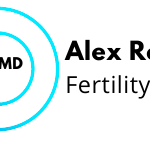Is IVF a Sin? Exploring the Ethics, Faith, and Science Behind In Vitro Fertilization
When you’re dreaming of starting a family but facing roadblocks, in vitro fertilization (IVF) might feel like a lifeline. It’s a medical marvel that’s helped millions of people hold their babies in their arms. But for some, it’s not just a question of science—it’s a question of faith. Is IVF a sin? Does it cross a moral line drawn by religious beliefs? Or is it a gift that aligns with the desire to create life? This isn’t a simple yes-or-no topic, and that’s why we’re diving deep into it today.
IVF stirs up big emotions and even bigger questions. Some see it as playing God, while others view it as a way to fulfill a sacred calling to build a family. With so many opinions swirling around—on social media, in church pews, and at family dinners—it’s worth taking a closer look. We’ll explore what major religions say, what science tells us, and what real people are wrestling with. Plus, we’ll uncover some angles you might not have thought about yet—like how unused embryos are handled or what happens when faith and fertility clinics collide.
So, grab a comfy seat and let’s unpack this together. Whether you’re curious, conflicted, or just here to learn, there’s something in this journey for you.
What Is IVF, Anyway?
Before we get into the heavy stuff, let’s break down what IVF actually is. Imagine a couple who’ve been trying to have a baby for years with no luck. IVF steps in as a high-tech helper. Doctors take an egg from the woman (or a donor), mix it with sperm from the man (or a donor) in a lab, and let it grow into an embryo. Then, that tiny embryo gets placed into the woman’s uterus, hoping it’ll grow into a healthy baby. It’s not magic—it’s science—but it can feel pretty miraculous.
Since the first IVF baby, Louise Brown, was born in 1978, over 8 million babies have come into the world this way. That’s a lot of little miracles! But the process isn’t perfect. It’s expensive (think $12,000–$15,000 per try in the U.S.), emotional, and doesn’t always work—success rates hover around 30–40% per cycle for women under 35, dropping lower as age goes up. Still, for many, it’s a chance worth taking.

Why Do Some People Think IVF Might Be a Sin?
The idea that IVF could be sinful doesn’t come out of nowhere. It’s rooted in deeply held beliefs about life, nature, and God’s role in both. Let’s walk through the main reasons some folks pause at the thought of IVF.
Life Begins at Conception—What About the Embryos?
For many religious people, life starts the moment sperm meets egg. In IVF, doctors often create multiple embryos to boost the odds of success. But not all of them get used. Some are implanted, some are frozen for later, and others might be discarded if they’re not viable. This is where the tension kicks in.
- The Concern: If an embryo is a human life, discarding it could be seen as ending that life—something many faiths, especially Christianity, consider wrong. The Catholic Church, for example, teaches that every embryo deserves protection from the moment of conception.
- Real-Life Example: Picture a couple who creates 10 embryos during IVF. Two get implanted, one becomes a baby, and the rest are frozen. Years later, they decide they’re done having kids. What happens to those frozen embryos? For some, letting them go feels like a moral dilemma.
Playing God or Partnering with Him?
Another big question is whether IVF oversteps human boundaries. Some argue that conception should happen naturally, the way God intended—through love and intimacy between a husband and wife. IVF, with its lab dishes and needles, can feel like humans taking control of something sacred.
- The Flip Side: Others say God gave us brains and science to solve problems. If infertility is a hurdle, isn’t IVF just a tool to overcome it, like medicine fixes a broken leg?
The Marriage Connection
In some faiths, the act of creating life is tied tightly to marriage. IVF can complicate this when donor eggs, sperm, or surrogates get involved. If a child isn’t biologically tied to both parents—or if a third party steps into the process—some worry it disrupts the unity of marriage.
- A Thought: A single woman or same-sex couple using IVF might face extra scrutiny here, depending on the religious lens.
What Do Major Religions Say About IVF?
Faith shapes how people see IVF, and different religions have different takes. Let’s peek at what some of the big ones say.
Christianity: A Mixed Bag
Christianity’s view on IVF isn’t one-size-fits-all—it depends on the branch.
- Catholic Church: The official stance is a firm no. The Vatican’s Donum Vitae (1987) says IVF separates procreation from the marital act, making it morally unacceptable. Plus, the fate of unused embryos is a dealbreaker. Pope Francis has echoed this, calling out practices that treat embryos like “disposable objects.”
- Protestant Views: It’s more of a free-for-all here. Some evangelical groups share Catholic concerns about embryos, but many see IVF as a blessing for couples longing to fulfill the biblical call to “be fruitful and multiply” (Genesis 1:28). A 2023 survey by the Pew Research Center found 54% of U.S. Protestants think IVF is morally okay, though opinions shift when donors or surrogates enter the picture.
- A Unique Angle: Some Christians wonder if IVF could honor God if it’s done thoughtfully—say, only creating as many embryos as a couple plans to use.
Islam: It’s Complicated
In Islam, family is huge, and helping infertile couples is often seen as a good thing. IVF gets a cautious green light from many scholars, but there are rules.
- The Deal: It’s fine as long as it’s the husband’s sperm and wife’s egg, and no third parties are involved. Surrogacy or donors? That’s usually off-limits—it could mess with lineage, which is a big deal in Islamic law.
- A Cool Fact: A 2021 study in The Journal of Religion and Health found that 70% of Muslim couples in the Middle East who used IVF felt it aligned with their faith, as long as it stayed within marriage.
Judaism: Life Is Key
Judaism tends to lean pro-IVF. The command to “be fruitful and multiply” is taken seriously, and rabbis often see medical help as a way to fulfill it.
- The Catch: Orthodox Jews might debate donor gametes or surrogacy, but many approve if it’s the couple’s own material. A 2022 report from Israel (where IVF is government-funded) showed over 40,000 cycles annually—proof it’s widely accepted.
- Fun Fact: Some Jewish scholars argue that since embryos in a lab aren’t in a womb, they don’t have the same status as a fetus, easing ethical worries.
Other Faiths
- Hinduism: There’s no official rulebook, but IVF is generally cool if it supports family life. Karma and dharma (duty) play a role in personal decisions.
- Buddhism: It’s more about intent. If IVF is done with compassion and not greed, most Buddhists don’t blink.
The Science Says: What’s Really Happening?
Science doesn’t care about sin, but it can shed light on the debates. Let’s look at some facts that often get tangled up in the IVF convo.
When Does Life Begin?
This is the million-dollar question. Biologists say an embryo has the potential for life from day one—it’s got unique DNA and can grow into a person. But potential isn’t the same as personhood.
- Research Bite: A 2023 study in Nature found that embryos don’t start forming key human features (like a nervous system) until about 14 days after fertilization. This “14-day rule” is why many scientists and ethicists draw a line there.
- Why It Matters: If you’re wrestling with the embryo question, this might shift how you see those early lab stages.
Success Rates and Realities
IVF isn’t a sure thing. The CDC says for women under 35, about 1 in 3 cycles leads to a live birth. Older than 40? That drops to 1 in 10. It’s a rollercoaster—physically, emotionally, and financially.
- Practical Tip: Couples often freeze embryos to avoid starting from scratch each time. It’s cheaper and less taxing, but it adds to the “what happens to them later” debate.
The Unused Embryo Dilemma
Globally, millions of embryos sit in freezers. In the U.S. alone, over 1 million are cryopreserved, per a 2024 estimate from the American Society for Reproductive Medicine (ASRM). Options include:
- ✔️ Using them for future pregnancies.
- ✔️ Donating them to other couples.
- ✔️ Giving them to science for research.
- ❌ Thawing and discarding them.
Each choice comes with its own moral weight, depending on your beliefs.
Real Stories: Faith Meets Fertility
Numbers and rules are one thing, but people’s lives bring this home. Here are two stories (inspired by real experiences, but names changed) to show how faith and IVF collide.
Sarah’s Journey: A Christian Couple’s Choice
Sarah and Mark, married for eight years, couldn’t conceive naturally. As devout Baptists, they prayed hard about IVF. Their pastor was supportive but warned about unused embryos. They decided to go for it, agreeing to only create three embryos—one for each child they hoped for. Two worked, and now they’ve got twins. The third? Still frozen, waiting for their next step.
- Sarah’s Take: “We felt God guided us to this. It’s not perfect, but it’s our family.”
Amina’s Path: An Islamic Perspective
Amina, a 34-year-old Muslim woman, faced infertility after a miscarriage. She and her husband, Hassan, turned to IVF after consulting their imam, who said it was halal if no donors were used. It took two cycles, but their son was born in 2024. Amina feels blessed but admits the process tested her faith.
- Amina’s Words: “It’s not how I pictured having a baby, but Allah gave us this chance.”
Interactive Quiz: Where Do You Stand?
Let’s pause for a sec. How do you feel about IVF? Take this quick quiz to find out. Jot down your answers and see what they say about your views!
- When do you think life begins?
- A) At conception (sperm meets egg).
- B) When an embryo implants in the uterus.
- C) Later, like when a heartbeat starts.
- Is it okay to create embryos in a lab?
- A) Yes, if it helps people have kids.
- B) No, it’s too unnatural.
- C) Only if all embryos are used.
- What should happen to unused embryos?
- A) Donate them to others or research.
- B) Keep them frozen forever.
- C) Destroying them is fine if they’re not needed.
Results: Mostly A’s? You’re likely pro-IVF with few limits. Mostly B’s? You might lean against it for moral reasons. Mostly C’s? You’re in the middle, weighing both sides. Share your thoughts with a friend—it’s a great convo starter!
Three Angles You Haven’t Heard Enough About
Most articles skim the surface of IVF and sin, but there’s more to dig into. Here are three points that don’t get enough airtime—and they might change how you think.
1. The Emotional Toll on Faith
IVF isn’t just a physical journey; it’s a spiritual one. Couples often wrestle with guilt, even if their faith says it’s okay. A 2023 study in Fertility and Sterility found that 40% of religious IVF patients felt conflicted about their choice, even when it worked. Why? The process can feel cold—syringes and petri dishes don’t match the warmth of natural conception.
- A Deeper Look: Imagine praying for a baby, then wondering if the lab tech “made” it instead of God. That tension’s real.
- Tip: Talking to a faith leader or counselor during IVF can help bridge that gap.
2. The Environmental Footprint of IVF
Here’s a curveball: IVF has an eco-side. Labs use tons of energy—think freezers running 24/7 at -196°C to store embryos, plus disposable plastics for every procedure. A 2024 report in Environmental Health Perspectives estimated that one IVF cycle produces as much carbon as driving 200 miles. For eco-conscious believers, this adds another layer to the “sin” question.
- Why It’s New: Most debates skip this, focusing only on embryos or theology.
- Suggestion: Ask clinics about green practices—like recycling programs or energy-efficient tech.
3. The Rise of “Ethical IVF”
Some clinics now offer “ethical IVF” options to ease moral worries. Think fewer embryos created, or guarantees that none get discarded. A small 2024 pilot program in Texas saw 15 couples try this, with an 80% success rate using just one or two embryos per cycle.
- The Catch: It’s pricier and slower, but it’s a game-changer for the faith crowd.
- Action Step: If this speaks to you, search for clinics with “minimal embryo creation” policies.
Practical Tips: Navigating IVF with Faith
If you’re torn between IVF and your beliefs, you’re not alone. Here’s a step-by-step guide to finding peace with your choice.
Step 1: Talk to Your Faith Community
Chat with your pastor, imam, rabbi, or whoever guides you spiritually. Ask:
- ✔️ What does my faith say about IVF?
- ✔️ Are there ways to do it that fit my values?
- ❌ Avoid assuming you know the answer—rules vary!
Step 2: Set Your Boundaries
Decide what feels right for you. Maybe it’s:
- ✔️ Only using your own egg and sperm.
- ✔️ Limiting how many embryos you make.
- ❌ Saying no to donors or surrogates.
Step 3: Plan for the “Extras”
Think ahead about unused embryos. Options:
- Freeze them for later.
- Donate them to another couple.
- Offer them for research (if your faith allows).
Step 4: Lean on Support
IVF’s tough—physically and spiritually. Find a friend, support group, or therapist who gets it. A 2023 ASRM survey found 65% of patients felt less stressed with a solid support crew.
Poll Time: What’s Your Take?
We’re curious—what do you think after reading this? Vote below and check back to see what others say!
- Is IVF a sin?
- Yes, it goes against my beliefs.
- No, it’s a tool for good.
- Depends on how it’s done.
Results will be tallied next week—stay tuned!
The Bigger Picture: Society, Trends, and IVF
IVF isn’t just personal—it’s cultural. On platforms like X, people are buzzing about it. Some call it a “miracle,” others a “moral mess.” Google Trends shows searches like “is IVF against religion” spiking in 2025, especially in the U.S. and Europe. Why? More couples are delaying kids (average first birth age hit 30 in 2024, per the CDC), and infertility’s up—1 in 8 couples now struggle.
- A Fresh Insight: Social media debates often miss the middle ground. Tons of folks aren’t all-in or all-out—they’re just trying to figure it out, like you might be.
Wrapping It Up: No Easy Answers, But Plenty of Hope
So, is IVF a sin? It depends on who you ask—and what you value. For some, it’s a no-go because of embryos or “natural order.” For others, it’s a God-given chance to build a family. Science keeps pushing the boundaries, and faith keeps asking the big questions. What’s clear is this: there’s no one-size-fits-all answer.
If you’re wrestling with this, take it slow. Talk it out, pray it over, and trust your gut. IVF’s brought joy to millions, but it’s okay to pause and ponder the deeper stuff. Whatever you decide, you’re not alone on this road.
Got thoughts? Drop a comment—we’d love to hear your story or take on this!


